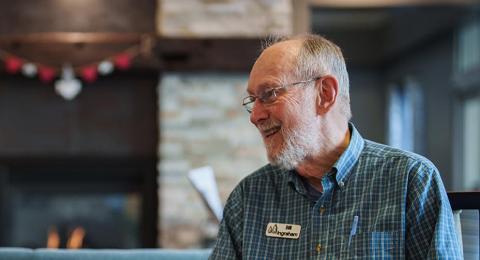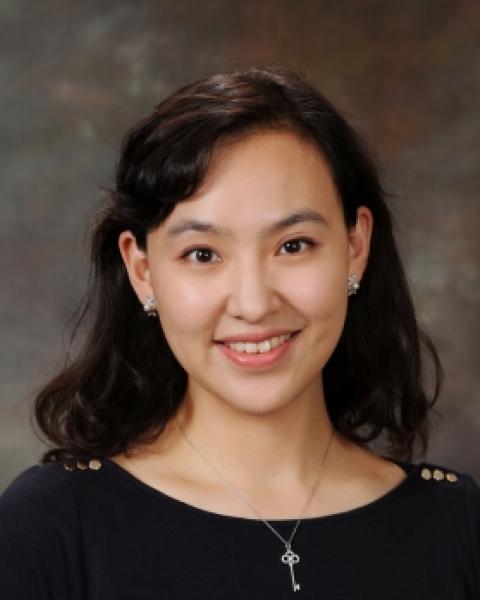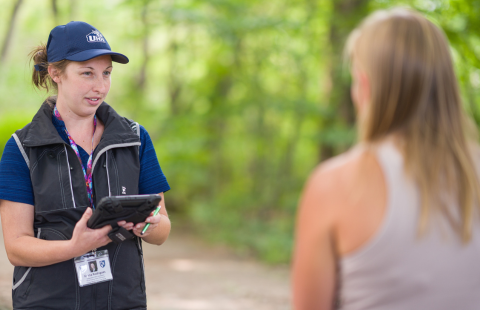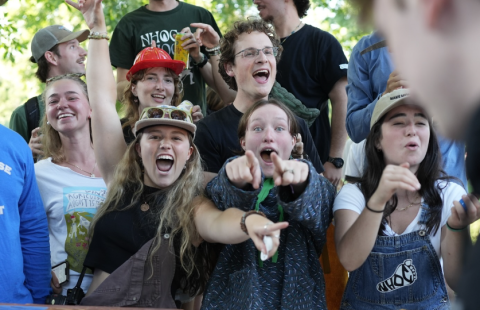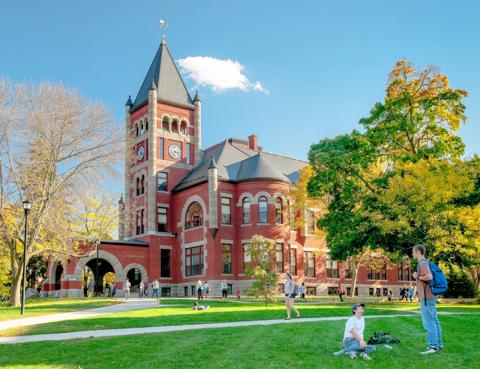What is gerontology?
Gerontology is the study of the biological, psychological and social aspects of aging. In this minor, you’ll learn to promote the health and well-being of aging individuals through research, teaching and service. The interdisciplinary curriculum lets you explore the fundamentals of gerontology. Faculty research areas include elder maltreatment, intergenerational relations and support, transitions in care and functioning, and community services and policies for older populations. You can combine the minor in gerontology with a major in areas such as healthcare, human development and family studies, recreation management or social work, preparing you for a variety of in-demand careers.
Why study gerontology at UNH?
As a major public research university, UNH emphasizes hands-on experience and research opportunities. Students in the gerontology minor have the opportunity to put theory into practice through the Center on Aging and Community Living, an integrated center of applied research, evaluation and training relevant to aging and community living. The center focuses on care giving, care transitions, person-centered approaches, innovative community living, and workforce development. The College of Health and Human Services also hosts an annual Age of Champions health fair, the goal of which is to raise awareness of and promote healthy aging from a holistic perspective.
Potential careers
- Assisted living activities coordinator
- Educator
- Eldercare policy analyst
- Family intervention case manager
- Human rights advocate
- Rehabilitation counselor
- Social worker
- Therapeutic recreation coordinator
- Veteran services provider
From the CHHS Blog
Curriculum & Requirements
The gerontology multidisciplinary minor (GMM) provides students with the opportunity to examine and evaluate the aging process as it affects the individual and society within the United States and in the world. Through a multidisciplinary course selection, students develop an understanding of aging from a variety of perspectives with a focus on how people age physically, cognitively, emotionally, and socially. Students are encouraged to analyze the historical and philosophical foundation from which policies, programs, and professional activities affecting the aged are developed, implemented, and evaluated. The purpose of GMM is to prepare students as they enter their career fields on the effects that the growing elderly population will have in every component of modern life.
- The minor in gerontology consists of completing five courses (20 credits).
- Special Topic courses on aging-related topics can be used for the minor if approved by the minor coordinator.
- Students must complete courses with a grade of C- or better and a 2.00 grade point average.
- Academic policies related to minors.
| Code | Title | Credits |
|---|---|---|
| Required Courses | ||
| EXSC 607 | Biology of Aging | 4 |
| GERO 500 | I'm Old, So What! An introduction to aging in the United States | 4 |
| Electives | ||
| Select three courses from the following: | 12 | |
GERO 795 | Independent Study 2 | |
HDFS 625 | Adult Development | |
HDFS 707 | Practicum 1 | |
HHS 798 | Special Topics | |
HPE 601 | Lifetime Sports | |
NURS 506 | Human Development, Interaction and Learning Across the Lifespan | |
NURS 535 | Death and Dying | |
NUTR 400 | Nutrition in Health and Well Being | |
NUTR 600 | Field Experience in Nutrition 1 | |
NUTR 650 | Life Cycle Nutrition | |
NUTR 773 | Clinical Nutrition | |
NURS 601 | Function and Wellbeing of Older Adults | |
OT 501 | Developmental Tasks of Adulthood | |
PHIL 660 | Law, Medicine, and Ethics | |
RMP 503 | Therapeutic Recreation Rehabilitation Principles & Interventions | |
RMP 563 | Recreation Management and Policy Practicum 1 | |
SOC 725 | Social Demography | |
SW 702 | Aging and Society | |
SW 740 | Social Work Internship Experience 1 | |
SW 741 | Social Work Internship Experience II 1 | |
| Total Credits | 20 | |
- 1
Up to 4 credits from the practicum courses including HDFS 707 Practicum, NUTR 600 Field Experience in Nutrition, RMP 563 Recreation Management and Policy Practicum, SW 740 Social Work Internship Experience or SW 741 Social Work Internship Experience II can be used for GMM if a student did their internship at aging-related institutions.
- 2
GERO 795 Independent Study is not a required course but up to 4 credits can be used toward the minor. GERO 795 is used by students and faculty as an option for creating an individual experience relating to aging. A faculty member must approve and oversee (mentor) the student's work. Additionally, the minor coordinator must also approve of the proposal and retain a copy. A copy of the proposal and the final copy will be kept in the student's major academic folder.
